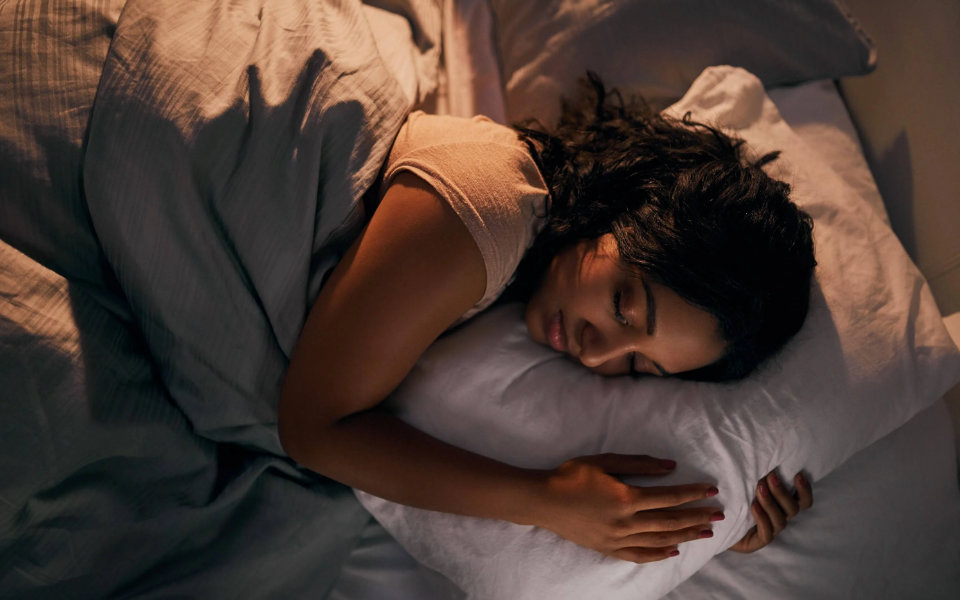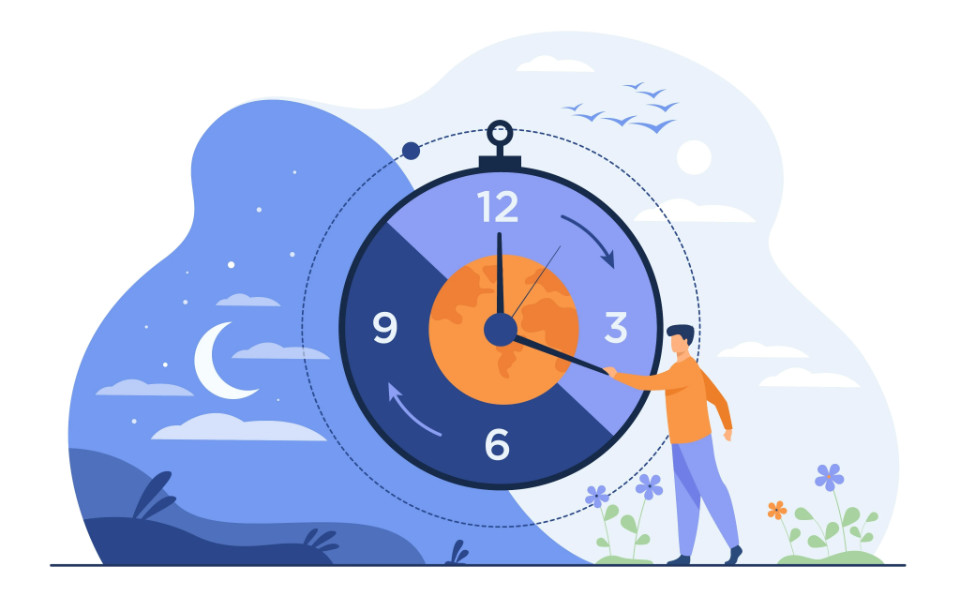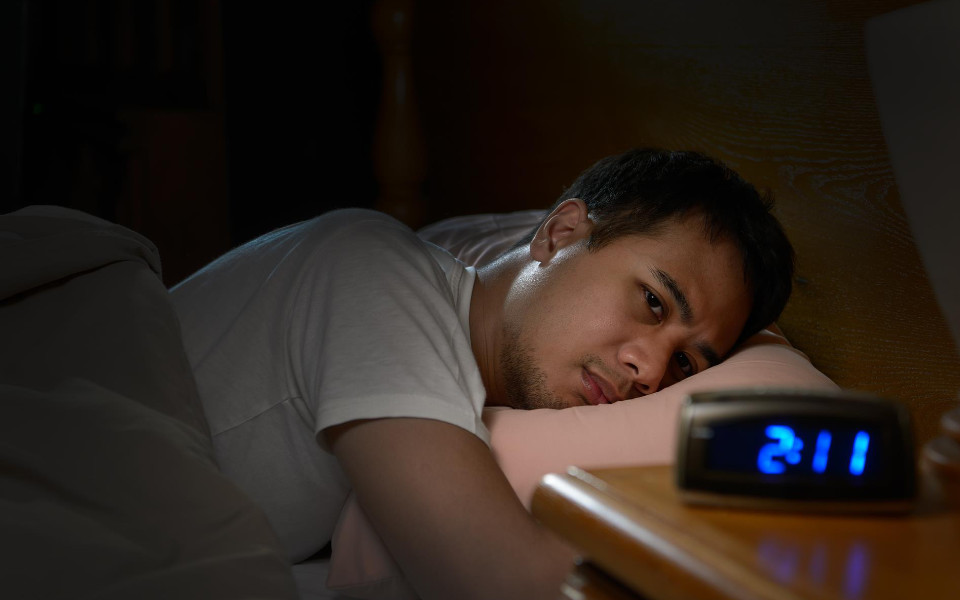This might come very strange, but, sleep seems to be very glamorous for your overall wellbeing. It can do wonders on how your body can recover and repair itself.
Pretty sure you haven’t missed a single article tackling health and wellness without mentioning that you should aim for a good sleep to be healthy. Yup, that’s how valuable a good sleep can impact your health, it needs to be consistent and high quality!
Experts have been very loud lately in saying that sleep generates unimaginable benefits both mentally and physiologically. Like any other new habit, it would generate greater benefits to one’s health if steps toward better sleep are done consistently.
Why Is Sleep So Important?

Let’s get to the bottom of it. If countless experts have been repeatedly saying that sleep is crucial for overall health, then it adds so much value to answer the question “why”?
Why is it so important to get good sleep?
As blunt as it sounds, but getting good sleep can actually fix you.
When your body gets good sleep regularly, it creates a balance that prompts your body to repair itself from physical and mental exhaustion that has accumulated throughout the day. When a person sleeps well on a daily basis, it promotes equilibrium between stress and rest.
When the body hits a sweet spot wherein there’s a good amount of rest and controlled exposure to stress, there’s a very low chance for diseases to appear that are induced by stress like hypertension, sleep apnea, and even cancer (well, the list goes on, since most diseases are rooted by chronic stress especially if sleep deprivation is a lingering issue).
Yes folks, that’s how important sleep is. You can safely say it’s a total game-changer for the body!
How Do You Know That You Need More Sleep?
Let’s admit it, it’s a wiggly route to finally figure out that sleep is starting to whack you until you end up having zero hours of sleep for the night. It’s as if the manifestations of sleep deprivation aren’t even existing because of the body’s way of quickly adapting and eventually getting used to the unhealthy routine.
But, are there really warning signs?
Sleep Deprivation Symptoms:
a) Power naps are longer than expected
Your body literally longs for rest and recovery. When you don’t get good sleep (with adequate length and quality), your mind reacts poorly by wanting it to shut down to catch a good rest.
For most people, the highest demand for energy happens in the morning. And shortly after lunch or early afternoon, your body just suddenly reacts to the stress and exhaustion piling up mid-day, and that can end with longer naps to help you sustain until your day officially comes to an end. The constant “longing” or “wanting” to nap isn’t really a concern if a person happens to complete a deep sleep the night before. But, this can become a norm if sleep deprivation is starting to surface in a person’s daily routine.
b) Energy dips happen often
When you’re sleep-deprived, you execute your normal routine quite poorly than you normally do. Tasks are done slower or worse, you end up not doing it at all. This creates a gap when you compare someone with very poor sleep over to the one who got very good sleep. This instance is widely observed for people in the workforce where their level of productivity is greatly affected by the sleep quality.
On some occasions, when an individual is pretty active, strength and overall performance during high-intensity training can easily wear out when sleep has been in a bad cycle. This occurs to athletes during the off-season where training is a bit loose and lenient than they normally are. Also, mothers with new born experience exact episodes of energy dips at a specific time of the day shortly after delivery. In a nutshell, sleep deprivation can easily tear a person down.
c) Cognitive function declines
Chronic sleep deprivation can develop impaired cognitive function. Sense of alertness and focus isn’t really at its peak when someone lacks sleep. During deep sleep, we maintain the health of the brain as well, which is entirely in charge of memory. It literally recharges your brain from mental exhaustion, this significantly keeps the brain’s health intact and its perfect shape when we are fully awake.
Sleeping enhances the brain’s memory and cognitive function, this serves as a fundamental factor that boosts performance of the brain when a person is at work or even simply doing normal chores. It’s a no-brainer that impaired sleeping habits can clearly have significant effects to someone’s brain health. If the cognitive function is starting to be compromised, then sleep deprivation has to be addressed immediately.
Reasons Why Sleep Is Becoming Your Problem

There are countless reasons why sleep may be compromised. Some are easy to find out, some need further observation that involves help from a health care professional. Whatever the root cause may be, here are some of the reasons why sleep is becoming an issue to most people:
1. Work
A huge number of people who struggle to sleep are rooted from the pressure and stress related to work. It can be physical, mental, psychological effects revolving around each and everyone’s job that cultivates bad habits leading to sleep deprivation. Chances are, this unhealthy pattern of overthinking can have a huge impact on sleep quality.
2. Compromised sleeping nook
If the place you sleep is built not in a way where you can successfully induce sleep, then this is a shortcut to sleep deprivation. Delegated space for sleep must be free from unnecessary clutter: whether its noise, trash, belongings, or even smell. Anything that won’t make you sleep soundly should be shoved out of the way for you to have better sleeping patterns. For some people, their sleeping nook is the most well-maintained corner in the house or flat, since this is a place when the physical and mental state can be very vulnerable, in terms of rest and relaxation.
3. Existing medical condition
There are medical conditions that can disrupt a person’s sleeping pattern. It can be due to side effects of certain medications or perhaps due to an unstable pain scale which can affect sleep big time.
Unfortunately for some, the medical condition happens to be directly related to sleep itself. And nothing is more important than an immediate diagnosis to further move forward in management and treatment. This reduces the probability where sleep can seriously cause a threat to a person’s overall health long term.
Most Common Sleep Disorders
Sleep deprivation symptoms can only get worse than the ones listed above. Chances are, people who are sleep deprived for a while might be dealing with any of these sleep disorders:
- Restless Legs Syndrome (RLS)
- Insomnia
- REM Sleep Behaviour Disorder (RBD)
- Sleep apnea
- Narcolepsy
Someone can feel sleep deprivation even without having to be clinically diagnosed. More often than not, sleep deprivation starts as a feeling or an unhealthy disposition to begin with. It’s never too early to address sleep and get better with it as soon as you feel the need to.
Now, if the list above has somewhat hit a spot on you, then it’s a clear-cut sign that your sleep would need serious fixing.
Ways To Improve Your Sleep
The process of aiming for better sleep doesn’t have to be muddling. The mind works in more ways that you can actually imagine. Once you start introducing positive habits that can effectively resolve sleep deprivation, then more likely you will be successful in no time. When you put the effort in, the body will eventually adapt and build better habits that will help you sleep better.
You might want to try some of these tips:
1. Check your bedroom
The environment or the area in your flat where you choose to induce your sleep is sacred. In recent years where most of us are stuck inside the four walls of a concrete structure, it is very crucial for your bedroom to remain a bedroom and nothing else.
It gives your body so much peace when the only thing you’re left to do in your bedroom is to simply rest and sleep. Most people struggle to rest and recover in their own bedrooms specifically when it’s re-purposed as an office/ playroom for the kids. The mind gets mixed signals when this happens. It creates a sense of confusion that you have to stay active and alert in the bedroom since it has been used for a different purpose rather than just simply sleeping and recharging.
Piece of advice, let the bedroom serve its one and only purpose, which is to induce better sleep for you to relax and recharge. This might not be applicable for some, but it’s necessary for your body to have the tailored fit zone in the house where its sole purpose is to promote better sleep.
2. Distant yourself from your gadgets
The light that the mobile phones, tablets, television and laptops generate from the screen are called blue light. Studies have revealed that the blue light from prolonged screen time on these devices makes your mind think that it’s daytime. Yes, it gives your mind and body the illusion that it’s still daytime. This phenomenon lingers inside the body, again sending mixed signals. If this continues to happen night after night, sleep eventually gets compromised. This is where late nights pop out of nowhere, next thing you know, you’ve been catching sleep for as long as you can remember.
From a more scientific perspective, blue light from gadgets actually hampers the activation of Melatonin inside the body. Melatonin is the hormone in the body in charge of sleep. So, there it is, safe to say that the gadgets we have now have the power to sabotage our sleep!
If the dynamics you follow at the moment would really revolve around screens, do yourself a favour and put a time where you can completely stop and call it a day, just before you head out and start your evening routine in preparation for bedtime. Two hours before bedtime and completely no blue light exposure can already go a long way when we speak about better sleep quality.
3. Observe how you eat
There is a bunch of stuff around the food department that can affect your sleep, surprisingly. It directly affects how the hormones in your body function to produce Melatonin. Also, poor quality of food affects the response or alertness of the brain. This can be further magnified when a person starts having poor performance accompanied by poor sleeping pattern.
In short, it abruptly changes the overall function of the entire body, including the brain when you put in good quality foods on a daily basis.
It’s important to know that a single day won’t make a difference in your journey towards achieving good quality sleep. Speaking of food, it needs to be consistent, more like a way of life to have a significant effect on your goals.
Here’s a more detailed approach on how you should view food and sleep combined:
a) Caffeine
Caffeine is the first one to take the blame when we speak of sleep deprivation. But, there’s another perspective that coffee lovers need to know.
There are studies saying that caffeine lingers inside the blood, for a good 6 hours. After that period, the body starts excreting caffeine. It’s more efficient for the body to drink or consume anything with caffeine (coffee, tea, chocolate) earlier in the day to give your body enough time to eliminate caffeine completely once you are ready to hit bedtime. It might not be wise to take caffeine in the afternoon if you wish to be down earlier at night or if you’re trying to fix up your sleeping pattern.
b) Quality
The quality of foods you eat throughout the day will reveal how well you can sleep at night. If a person happens to eat calorically inadequate meals during the day, chances are quality of sleep may be compromised.
Munching on food loaded with refined sugar can make you drowsy soon after devouring it. That’s the reason why you feel the occasional need to doze off either post-breakfast or post-lunch. However, when you lean towards something cleaner like rice, quinoa and such, it can actually sustain your energy more than you can imagine.
Case in point, it pays a lot when you gravitate into something more natural or whole foods, if you’re dealing with sleep issues.
The effect of food doesn’t end in your macronutrients. In fact, a huge chunk of your micronutrients including vitamins and minerals are the ones in high demand to get better sleep. Vitamin and mineral supplements are definitely something you can consider, since these components are the activators or enablers to facilitate normal function of the body’s organs involved in improving sleep.
Of course, there’s no better way to get your most absorbable forms of micronutrients other than your fresh produce, including fruits and vegetables. Each spectrum or colour has a distinct benefit in the body which makes all the processes inside more effective in inducing sleep.
c) Timing of meals
This habit seems to be the last idea that pops into everyone else’s mind when we speak of sleeping better.
To be more specific, consuming meals too close to your desired bedtime can actually do more harm than good. Gastric acid builds up after putting the food in, this is a natural process in the gastrointestinal tract, to initiate digestion and for the food to be broken down systematically. However, if it happens late at night, much more when you’re almost about to sleep, gastric juices tend to irritate the throat area, that leads to acid reflux.
This is where midnight snack has to stop as soon as possible. Come up with at least a 3-hour gap prior to bedtime where you will enjoy your last meal. That’s good enough for your gut to start digestion and break down of food, and safe enough time to not disrupt your sleep caused by acidity and other related discomforts.
Ways to Fall Asleep Faster

The benefits of good sleep are unremarkable. It’s only right to maintain deep sleep soonest if this has been a long-standing concern. Also, deep sleep promotes enough cell protecting mechanisms for the entire body which inhibits the threat against diseases and other potential culprits of inflammation. What’s even more important is the fact that adequate sleep at night can prevent threats against disease.
Before you even get there, here are some steps that can help you sleep faster:
1. Sleep hygiene
Sleep hygiene is the most recognised term used nowadays when we speak of the perfect sleep aid. In a nutshell, sleep hygiene is a cluster of routines or habits that is tailored fit for a single person, with only one mission, and that is the get better sleep night after night.
This aspect is customised for each individual, as long as its effective and efficient, and of course brings the body to a better health overall.
Why is sleep hygiene has to be tailored for or customised? Because each of us are working around different sets of dynamics around the house and work. Someone may need good music, fragrant sheets and perfect dim light to prompt the body that it’s time to rest and recharge. And for sure, the same set of habits may not work on another person, and that’s totally fine.
2. Plot a sleep schedule, and stick to it
No one knows your schedule better than you. If it has been pretty clear than you’re struggling in the sleep department, as taxing as it sounds, but it will be very helpful if you manage your time well so you will end up having a deep sleep as you cap off your day.
Sleep schedule shouldn’t revolve around sleeping time alone. Yes, the end goal is to have deeper, better sleep, but what you do the whole day can make or break the success you’ve been aiming for.
You can always include small habits within the schedule you’re trying to create like: having a very good breakfast, getting sun early in the morning, cut short your naps on weekends.
Remember, small positive habits can make a huge difference when you do it regularly!
3. Stay active during daytime
The release of endorphins, serotonin and adrenaline are all supposed to be out and about during daylight. The body’s circadian rhythm easily adapts to your intention of getting better sleep when most of your most vigorous, strenuous activities including workouts happen in the morning.
When you exercise: heart rate, metabolism (which is a huge factor to hunger pangs at wee hours of the night), and hormones are at their peak. Knowing all these, it can dramatically change your sleep cycle if you try to sneak in workouts closer to your bedtime. If this is something that can get out of hand when you get too occupied, consciously do moderate types of workouts at least 3 hours before bedtime. This gives your body enough space for the body to modulate its hormones, heart rate and even core body temperature, so your sleep will remain high quality.
4. Take your quiet time seriously
Quiet time is very dynamic for each individual. For some, quiet time would mean prayer time, meditation, yoga, mindful breathing, or even journal writing. In summary, it can be anything for anyone.
The whole concept of having to establish a quiet time before bed is to help you relax, and physically detach your mind and body from the stress of the day or even the week. To a certain extent, the body is one step close to recharging and completely on a different mode of relaxation when quiet time has commenced.
The idea of quiet time prevents the brain from being over stimulated, especially at night that greatly affects sleep. When the brain ends up being very active at night, it takes a while for it to feel calm and relaxed again. This hits the sleep pattern hard, which leads to sleep deprivation.
5. Be mindful of your fluid intake at night
There are times when you subconsciously fill yourself with water later in the day when you’re swamped during the daytime, right? But this can be a culprit of sleep deprivation.
On a normal cycle of the body, when you drink so much liquid, you will end up peeing so much a few hours later. If this petty habit will be pushed earlier in the day, you will definitely ditch the interrupted sleep at the wee hours of the night. When sleep is uninterrupted, a higher chance that you will pull off a deep sleep. This radiates in the morning once you feel refreshed and well-rested after a good night’s sleep.
6. Sleep supplement
Sleep supplements are becoming more and more recommended across the globe. Gone are the days that the fear of being dependent on these pills are setting people off. To set the record straight, it is highly unlikely to cause dependency. Why? Because they are mostly plant-based.
Sleep supplements like Melatonin, Valerian root, and Gingko Biloba are all proven to be very good sleep aid supplements. In general, their main role is to activate the pathway where the neurotransmitters in charge of sleep and relaxation would be high functioning once again. It penetrates all the right mechanisms in the human body to recognise that rest and relaxation are part of the daily routine and are both designed to be dominant in the evening.
Experts are confidently saying that a person won’t be dependent on these supplements as long as they’re taken in the right doses, and also with extra precaution from a health care professional.
Conclusion
Sleep is a very intricate but very important part of overall health, but surprisingly the least tackled until the past years. It’s one of those components of a healthy lifestyle that demands consistency and diligent practice to find success in the long run.
The body happens to be very resilient to destruction that it finds other ways possible to cope with sleep deprivation. However, it won’t be too much if you start paying attention to rest and relaxation before your body tells you to do so.
This is the ultimate route to circadian rhythm or finding the right balance where the body determines rest and relaxation, being totally different from stress and exhaustion. The body is one step closer to optimal health when good sleep is within reach.
Also, you are not messing up when you don’t get the right formula for good sleep the first time. Just like any other habit that the body goes through, sleep is no different. Allow your mind and body to go through the process of figuring out what sleep hygiene routine is best to help you stay away from the threat of disease in the long run.


